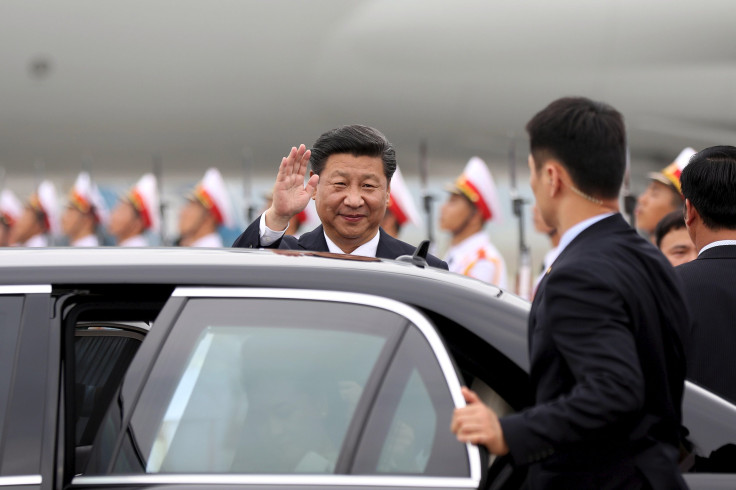Chinese President Xi Jinping Arrives In Vietnam Ahead Of Historic Meeting With Taiwan's Leader

Chinese President Xi Jinping arrived in Hanoi, Vietnam, Thursday for a crucial visit that could help ease tensions between the two countries over disputed territories in the South China Sea. Xi is scheduled to meet ruling Communist Party chief Nguyen Phu Trong, President Truong Tan Sang and Prime Minister Nguyen Tan Dung during his two-day trip.
Xi's visit is “of great significance” as it is the first by a top Chinese party leader to Vietnam in the past nine years, a senior official of the Communist Party of Vietnam (CPV), told China's official Xinhua news agency. Xi's visit also comes as Vietnam and China celebrate the 65th anniversary of the establishment of their diplomatic relations.
"The visit will be a chance for the two sides to review their ties in the past 65 years and map out directions for cooperation in the coming years, so as to further develop their relations in an intensive, healthy and stable manner for the benefits of the two peoples, and for peace, stability in the region and the entire world," Hoang Binh Quan, head of the CPV Central Committee's Commission for External Relations , reportedly said.
According to Xinhua, Xi’s visit to Vietnam could add substance to a "comradely and brotherly" friendship between the two countries.
Bilateral relations have been strained in recent years since China placed a giant oil rig near the Paracel islands in an area in the South China Sea that Vietnam claims is within its exclusive economic zone. The incident sparked several anti-China protests in Vietnam.
On Thursday, a group of about 30 people reportedly staged a brief protest in front of the Chinese Embassy in Hanoi over Xi's visit.
Despite the territorial disputes, China has been Vietnam's largest trading partner for the past 11 years with the two-way trade volume reaching $58 billion last year, according to reports.
Meanwhile, Xi and Taiwan's leader Ma Ying-jeou and are scheduled to meet Saturday in Singapore to discuss regional peace and stability.
Ma said at a news conference Thursday that the meeting could help ease Beijing’s diplomatic relations with Taiwan. "The object of our decision is not the next election," Ma said, according to the Associated Press (AP). "It's the happiness of the next generation."
Taiwan has presidential elections coming up in January, and while Ma cannot run because of term limits, his party has struggled in the run-up to the vote.
"Taiwan has for quite some time encountered no-little trouble participating in international events and we frequently hear from the public about this, especially nongovernmental organizations," Ma reportedly said. "Therefore, at this Ma-Xi meeting, we will raise the issue and hope to come to some agreement about it and allow Taiwan to have an expanded international space."
China has contested Taiwan's independence since 1949, when Nationalist forces lost a civil war against Communists and fled China's mainland. Ma, who came to power in 2008, has sought to strengthen ties with China.
Ma also said Thursday that plans for the meeting with Xi had drawn positive response from the United States, according to Reuters.
China's massive land reclamation over the past 18 months in the South China Sea has angered countries in the region and caused concerns in the U.S., which supports freedom of navigation in the area.
© Copyright IBTimes 2025. All rights reserved.





















